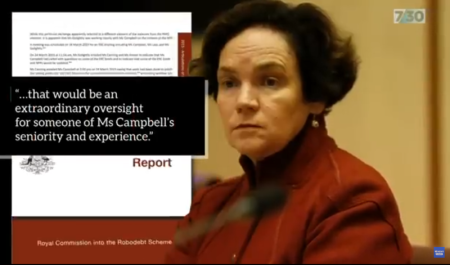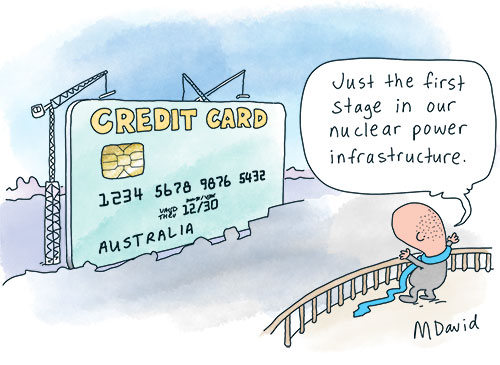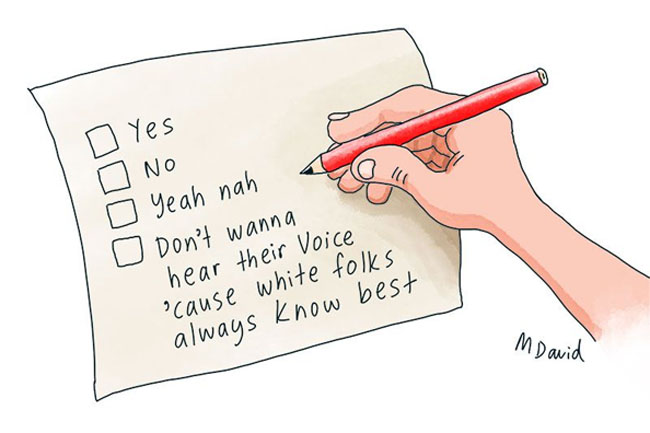A new book by former News Corp journalist Niki Savva reveals an unrelentingly critical account of the man who once ran our country, writes Michael Galvin.
ANYONE INTERESTED in Australian politics would know that journalist Niki Savva published an excoriating account of Scott Morrison’s term as Prime Minister earlier this month, just a day after he became the first Prime Minister to ever be censured by Parliament.
Reading Savva’s book, Bulldozed, is an interesting but strange experience. The period she describes seems to belong to a bygone, distant era — though it only ended six months ago. And yet, the warm body of this disgraced former Prime Minister still sits there, in the House of Representatives, still drawing a nice salary, still not able to stick to a coherent story about what he did as Prime Minister, let alone why. Or why he hasn’t done the honourable thing — resigned and disappeared into the Cronulla sand and surf.
I don’t think I have ever read a more unrelentingly critical account of an Australian politician. This one is right up there with the most damning books about Donald Trump, with whom, of course, Morrison has much in common.
Few authors write with more acidic ink in their veins than Savva, whose own background is a worthy story in itself. The child of Greek Cypriot parents who arrived in Australia not only unable to speak English, but illiterate in their mother tongue as well, Savva grew up and went to school in insalubrious Doveton, starting work as a cadet on the nearby Murdoch-owned suburban weekly, the Dandenong Journal.
That she could rise from such inauspicious beginnings to become one of the most influential political journalists in Australia is a major achievement. It is also true that she spent decades imbibing the sensationalist tenets of Rupert Murdoch and his ilk’s favoured form of journalism. The first principle of such journalism being: “dog bites man” is not a story; “man bites dog” is a story.
I was reminded of this feature of News Corp journalism while reading her latest book, which contains dozens if not hundreds of “man bites dog” moments. Unlike her colleague Katharine Murphy’s journalistic approach, which is to search relentlessly for the bigger picture to make sense of the detail, Savva delights in the colourful detail, the scoop, especially if it comes from a juicy source to which she has somehow gained access. It makes sense that one of her mentors is Laurie Oakes, master of the newsworthy scoop.
Psychologists distinguish between the messages we “give” and the messages we “give off”. And politicians are in the business of giving and giving off messages 24/7.
So, it is not surprising that general perceptions form of their character, despite all the filters coming between them and the average punter. For example, most people would think that Prime Minister Anthony Albanese is an optimist, not a pessimist; courageous, not a coward; trusting and trustworthy, not insecure and paranoid; a progressive, not a conservative. And most people would be able to connect what decisions he might make to why he might make them, the nexus here being the sense of the person that percolates in the public consciousness.
It is here that we get to the limits of Savva’s achievement. Her attacks on Morrison are relentless. There are so many grievous errors and own goals, remarked on by so many from his own side of politics, that the overall effect is crushing, almost claustrophobic.
And yet, this sheer weight of testimonial evidence is left to largely speak for itself. There are scores of “man bites dog” moments, but very little attempt to explain why this man keeps biting dogs.
As Frank Bongiorno in The Conversation has already noted, even though this book damns Morrison on every page, there is also a feeling that punches are being pulled. Whether the insiders Savva interviews are holding back, or whether she is holding back all that they said to her, it is hard to say. But the effect is a disconcerting disconnect between the weight of the political errors, amply catalogued, and the unemotional vagueness of what her interviewees have to say about them.
I suspect one of the reasons Savva’s interviewees might pull their punches is because their political careers might yet be resurrected. It would not be wise to say too much at the present juncture. Nevertheless, insofar as Savva posits a broader explanation for the reign of the Mad King, it is to do with his courtiers and the Liberal moderates and their lack of intestinal fortitude when something needed to be done about Morrison. Their courage failed them. They were taken for a ride; when decisions were required, they vacillated.
Of course, It is easy to judge Morrison on his actions — the “what” of his time in office. The “why” is a different matter. As stated above, for most people, there is usually a fairly direct link between what they do and why they do it, the why being informed by everything that is known about their character, ideology, past behaviour and so on. We are justified in probing the “why” because what they do and why they do it are unproblematically linked. The connection is self-evident.
But this is the enduring enigma about Morrison: the “why” is unknown and unknowable, even to his colleagues, probably even to himself. Savva gets to this line of speculation but does not cross it. And nor perhaps should she. To go further is to assume the role of his psychiatrist. Frank Bongiorno’s conclusion when he gets to this same endpoint is to hazard that it is all about Morrison’s religion if you want to understand him further.
This angle is suggested by many people but I think it is false. The more pertinent questions would be to do with what about Morrison’s childhood and life led him to this form of religion in the first place. And that is probably unknowable unless you were privy to conversations between Morrison and his psychiatrist. He really was/is that weird.
Michael Galvin is an adjunct fellow at Victoria University and a former media and communications academic at the University of South Australia.
Related Articles
- CARTOONS: The 'Danslide' is real
- Morrison's 'politics of retribution'
- EDITORIAL: Morrison's 'politics of retribution'
- How we prevented a Morrison dictatorship
- Coalition silence over Morrison's betrayal alarming
 This work is licensed under a Creative Commons Attribution-NonCommercial-NoDerivs 3.0 Australia License
This work is licensed under a Creative Commons Attribution-NonCommercial-NoDerivs 3.0 Australia License
Support independent journalism Subscribe to IA.















